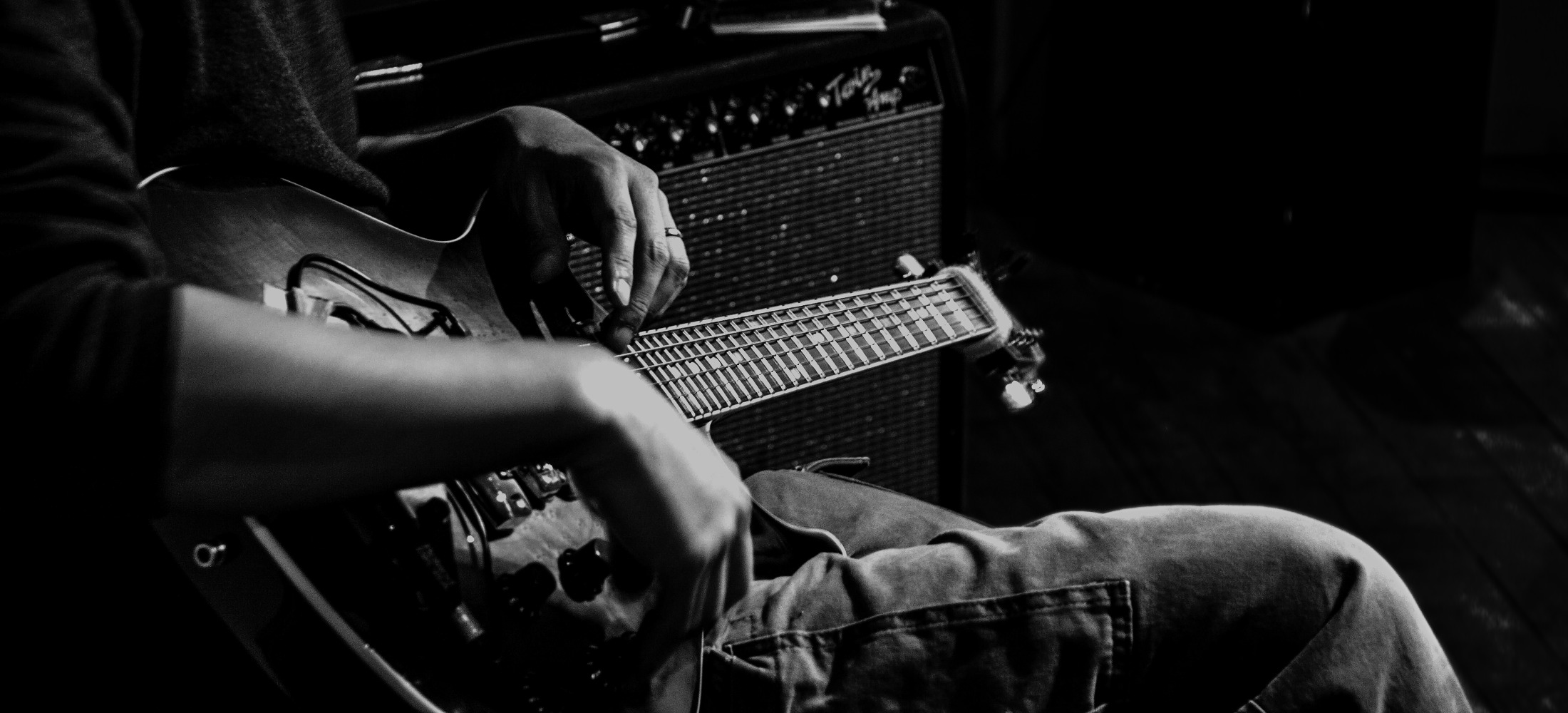This Sunday (September 22, 2013), at 8:00pm: a real-time rendering of Metis 9 by Han-earl Park (guitar), Catherine Sikora (saxophones) and Josh Sinton (saxophone and clarinet), plus a performance by the Lisa Mezzacappa Trio (Chris Welcome: guitar and voice; Lisa Mezzacappa: double bass; and Mike Pride: drums), Douglass Street Music Collective (295 Douglass Street, Gowanus, Brooklyn, NY 11217) [map and directions…]. $10 suggested donation.
reminder: Evan Parker and Han-earl Park at The Stone, New York

The British saxophonist Evan Parker, 69, has been a major figure in free improvisation since the late 1960s. That’s not only because of his sound and style, which starts from late Coltrane and pushes ahead—turning the process of circular breathing into a supercollider of tones and overtones—but also because of his sociability. The best free improvisers are drawn to him, and he to them, and his weeklong residency at the Stone corrals the best of the New York-based ones across three generations. [Read the rest…]
This Thursday (September 19, 2013), at 10:00pm: a performance by Evan Parker (saxophones) and Han-earl Park (guitar) takes place at takes place at The Stone (16 Avenue C, New York, NY 10009). Admission: $20 (students 13–19: $10; children <12: free).
Evan’s residency at The Stone will feature some amazing musicians (check The Stone calendar for the full program) including the Bleeding Edge Trio (with Peter Evans and Okkyung Lee) performing the 8pm set on Thursday.
video recordings: YouTube playlist… redux
Thanks to the efforts of the Downtown documentarists—Don Mount, Kevin Reilly and Scott Friedlander—there’s been a lot of changes to my YouTube channel and playlists since my last announcement almost a year ago. In terms of project specific playlists, I’ve updated the Eris 136199 playlist [watch…], and created one for Metis 9 [watch…]
performance: Han-earl Park and Andrea Parkins at The Living Gallery, Brooklyn
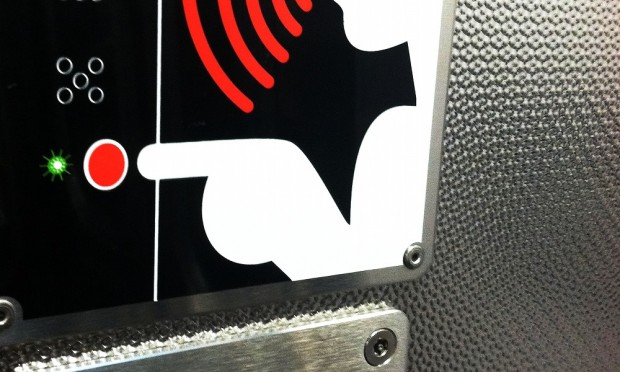
Wednesday, September 25, 2013, at 9:00pm: an evening of duos including a performance by Han-earl Park (guitar) and Andrea Parkins (accordion and electronics), plus Marc Edwards (drums) and Ernest Anderson III (guitar), and Tristan Shepherd (turntables) and Michael Foster (saxophone), takes place at The Living Gallery (1094 Broadway, Brooklyn, NY 11221) [map and directions…]. Recommended donation: $8.
See the performance diary for up-to-date info.
download release: Catherine Sikora, Han-earl Park and François Grillot, ‘Tracks in the dirt’
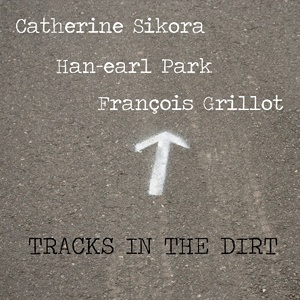
Clockwork Mercury Press releases Catherine Sikora, Han-earl Park and François Grillot’s Tracks in the dirt (Clockwork Mercury Press 003). [Bandcamp page…]
personnel
Catherine Sikora (soprano saxophone), Han-earl Park (guitar) and François Grillot (bass).
track listing
Helix of the Endless (10:34), The Chopping Block (11:39), Driftwood (13:43), Afternoon Song (15:53). Total duration: 51:49.
recording details
All compositions by Catherine Sikora, Han-earl Park and François Grillot.
Recorded September 26, 2012 at 56 Kitchen, New York.
Recorded by François Grillot.
Artwork and design by Eric Mingus.
© + ℗ 2013 Clockwork Mercury Press.
Also available for download [more…]
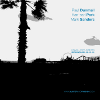
Dunmall-Park-Sanders (Birmingham, 02-15-11) [details…]
Performers: Paul Dunmall (saxophones and bagpipes), Han-earl Park (guitar) and Mark Sanders (drums).
(cc) 2013 Paul Dunmall/Han-earl Park/Mark Sanders.
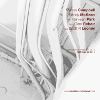
Gargantius Effect +1 +2 +3 (Nor Cal, 08-2011) [details…]
Performers: Murray Campbell (violins, oboe and cor anglais), Randy McKean (saxophone, clarinets and flutes) with Han-earl Park (guitar), plus Gino Robair (energized surfaces, voltage made audible) and Scott R. Looney (hyperpiano).
(cc) 2012 Murray Campbell/Randy McKean/Han-earl Park/Gino Robair/Scott R. Looney.
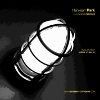
Park+Murray (Cork, 07-29-10) [details…]
Performers: Han-earl Park (guitar) plus Marian Murray (violin).
(cc) 2012 Han-earl Park/Marian Murray.
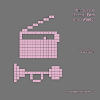
Jin-Park-Weeter (Cork, 01-24-11) [details…]
Performers: Jin Sangtae (electronics), Han-earl Park (guitar) and Jeffrey Weeter (drums and electronics).
(cc) 2012 Jin Sangtae/Han-earl Park/Jeffrey Weeter.
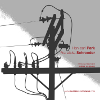
Park-Schroeder (Cork, 03-26-09) [details…]
Performers: Han-earl Park (guitar) and Franziska Schroeder (saxophone).
(cc) 2012 Han-earl Park/Franziska Schroeder.
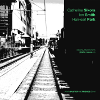
Sikora-Smith-Park (Cork, 04-04-11) [details…]
Performers: Catherine Sikora (saxophone), Ian Smith (trumpet) and Han-earl Park (guitar).
(cc) 2012 Catherine Sikora/Ian Smith/Han-earl Park.
performance diary 08-31-13 (Brooklyn, New York, Pittsburgh)
| date | venue | time | details |
|---|---|---|---|
| September 19, 2013 | The Stone 16 Avenue C New York, NY 10009 |
10:00pm | Performance by Evan Parker (saxophones) and Han-earl Park (guitar). Admission: $20 (students 13–19: $10; children <12: free). [Details…] [The Stone calendar…] |
| September 22, 2013 | Douglass Street Music Collective 295 Douglass Street Gowanus Brooklyn, NY 11217 |
8:00pm | Performance of Metis 9 by Han-earl Park (guitar), Catherine Sikora (saxophones) and Josh Sinton (saxophone and clarinet). Also performing: Lisa Mezzacappa Trio (Chris Welcome: guitar and voice; Lisa Mezzacappa: double bass; and Mike Pride: drums). Recommended donation: $10. [Details…] [DSMC page…] |
| September 25, 2013 | The Living Gallery 1094 Broadway Brooklyn, NY 11221 |
9:00pm | Performance by Han-earl Park (guitar) and Andrea Parkins (accordion and electronics). Also performing: Marc Edwards (drums) and Ernest Anderson III (guitar), and Tristan Shepherd (turntables) and Michael Foster (saxophone). Recommended donation: $8. [Details…] |
| October 27, 2013 | Downtown Music Gallery 13 Monroe Street New York, NY 10002 |
6:00pm | Performance by Eris 136199 (Nick Didkovsky: guitar; Han-earl Park: guitar; and Catherine Sikora: saxophones). Details to follow… Free admission. |
| November 7, 2013 | ModernFormations 4919 Penn Avenue Pittsburgh, PA 15224 |
8:00pm (doors: 7:30pm) | Performance by Han-earl Park (guitar) and other as part of Crucible Sound. Details to follow… Suggested donation: $7. |
| November 17, 2013 | Downtown Music Gallery 13 Monroe Street New York, NY 10002 |
6:00pm | Performance by Viv Corringham (voice and electronics) and Han-earl Park (guitar). Details to follow… Free admission. |
| October 2013 | New York and surrounding areas | I am seeking opportunities to perform Metis 9 in small and large ensemble contexts with, at its core, the trio of Han-earl Park, Catherine Sikora and Josh Sinton. In particular, I am seeking performance opportunities for Gargantius Effect +4 (Murray Campbell and Randy McKean with Gino Robair, Han-earl Park, Catherine Sikora and Josh Sinton). Interested promoters, venues and sponsors, please get in touch! [Details…] |
| 2013– | North America | Eris 136199 (Nick Didkovsky: guitar; Han-earl Park: guitar; and Catherine Sikora: saxophones) is seeking performance opportunities in North America, and, in 2014, elsewhere in the world. Interested promoters, venues and sponsors, please get in touch! [Detailed proposal…] |
| 2014– | Europe | I will be moving back to Europe at the start of 2014, and I am seeking performance opportunities for, in particular, my Europe-based projects including Numbers (with Richard Barrett), Mathilde 253 (with Charles Hayward and Ian Smith), and io 0.0.1 beta++ (with Bruce Coates and Franziska Schroeder). Interested promoters, venues and sponsors, please get in touch! |
Continue reading “performance diary 08-31-13 (Brooklyn, New York, Pittsburgh)”
video: Eris 136199 (Nick Didkovsky, Han-earl Park and Catherine Sikora) at Douglass Street Music Collective, Brooklyn
I’ve uploaded the video of ‘Monopod’ from the June 5 performance by Eris 136199 (Nick Didkovsky, Han-earl Park and Catherine Sikora). With the second improvisation, already uploaded back in June, you can now hear/watch the entire set. Thanks again to Scott Friedlander for the videography. ‘Monopod’ is dedicated to Don Mount.
Whether it’s the most creative interjections from Catherine, the merging of Nick and Catherine’s sounds, the moments of Roscoe-Mitchell-plays-the-music-of-Napalm-Death, or something akin to the sound of a broken ECM record, I’m enormously proud of this performance and this ensemble.
Eris 136199 is next performing on October 27, 2013 at Downtown Music Gallery, NYC. See the performance diary for up-to-date info.
download release: Swim This (Nick Didkovsky, Gerry Hemingway and Michael Lytle) with Han-earl Park, ‘Douglass Swim’
Elewhale Music Productions releases Swim This (Nick Didkovsky, Gerry Hemingway and Michael Lytle) and Han-earl Park’s ‘Douglass Swim’. [Bandcamp page…]
personnel
Nick Didkovsky (guitar), Gerry Hemingway (drums and harmonica), Michael Lytle (bass clarinet) and Han-earl Park (guitar).
track listing
the conference of super squirrels (11:10); a radio dial & the piano (9:36); a nap, a dream, a song & chaos cloud (11:07); calling in ideas (encore) (13:48). Total duration: 45:42.
recording details
All music by Nick Didkovsky, Gerry Hemingway, Michael Lytle and Han-earl Park.
Recorded July 26, 2013 at Douglass Street Music Collective, Brooklyn.
Performance as part of event curated by Han-earl Park.
Recorded and mixed by Michael Lytle.
© 2013 Elewhale Music Productions.
℗ 2013 Nick Didkovsky, Gerry Hemingway, Michael Lytle and Han-earl Park.
Also available for download [more…]

Dunmall-Park-Sanders (Birmingham, 02-15-11) [details…]
Performers: Paul Dunmall (saxophones and bagpipes), Han-earl Park (guitar) and Mark Sanders (drums).
(cc) 2013 Paul Dunmall/Han-earl Park/Mark Sanders.

Gargantius Effect +1 +2 +3 (Nor Cal, 08-2011) [details…]
Performers: Murray Campbell (violins, oboe and cor anglais), Randy McKean (saxophone, clarinets and flutes) with Han-earl Park (guitar), plus Gino Robair (energized surfaces, voltage made audible) and Scott R. Looney (hyperpiano).
(cc) 2012 Murray Campbell/Randy McKean/Han-earl Park/Gino Robair/Scott R. Looney.

Park+Murray (Cork, 07-29-10) [details…]
Performers: Han-earl Park (guitar) plus Marian Murray (violin).
(cc) 2012 Han-earl Park/Marian Murray.

Jin-Park-Weeter (Cork, 01-24-11) [details…]
Performers: Jin Sangtae (electronics), Han-earl Park (guitar) and Jeffrey Weeter (drums and electronics).
(cc) 2012 Jin Sangtae/Han-earl Park/Jeffrey Weeter.

Park-Schroeder (Cork, 03-26-09) [details…]
Performers: Han-earl Park (guitar) and Franziska Schroeder (saxophone).
(cc) 2012 Han-earl Park/Franziska Schroeder.

Sikora-Smith-Park (Cork, 04-04-11) [details…]
Performers: Catherine Sikora (saxophone), Ian Smith (trumpet) and Han-earl Park (guitar).
(cc) 2012 Catherine Sikora/Ian Smith/Han-earl Park.
performance: Evan Parker and Han-earl Park at The Stone, New York

Thursday, September 19, 2013, at 10:00pm: a performance by Evan Parker (saxophones) and Han-earl Park (guitar), as part of Parker’s residency (September 17–22), takes place at The Stone (16 Avenue C, New York, NY 10009). Admission: $15 $20 (students 13–19: $10; children <12: free).
With the change in the curatorial policy, I didn’t think I’d get back onstage at The Stone for a long while, never mind being asked to play by Mr Parker. I feel enormously privileged to have the opportunity to play a duo set with—the singular, remarkable, incomparable—Evan Parker.
See the performance diary for up-to-date info. [The Stone calendar…]
performance: Han-earl Park, Catherine Sikora and Josh Sinton at Douglass Street Music Collective, Brooklyn
Sunday, September 22, 2013, at 8:00pm: Han-earl Park (guitar), Catherine Sikora (saxophones) and Josh Sinton (saxophone and clarinet) explore interactive noise and improvisative complexity via Metis 9. Also performing: Lisa Mezzacappa Trio (Chris Welcome: guitar and voice; Lisa Mezzacappa: double bass; and Mike Pride: drums). The event takes place at Douglass Street Music Collective (295 Douglass Street, Gowanus, Brooklyn, NY 11217) [map and directions…]. $10 suggested donation.
See the performance diary for up-to-date info. [DSMC page…] [facebook event…]
about Metis 9
Metis 9 is a collection of improvisative tactics, and higher-level interactive macros for ensemble performance designed, designated and specified by Han-earl Park.
Metis 9 has ‘glorious noise’ or ‘frenzy’ at its root, yet it is not so much structuring the noise as it is a meta-layer of complexity that performers can introduce at will. Metis 9 does not tell the performer what to play, or provide all the details of how to interact, but it is an additional network protocol for interactive possibilities. Group improvisation is always the primary protocol; Metis 9 provides secondary or tertiary tactics that create an additional focused complexity. The decision for each bloop and bleep is still retained by the ensemble. These macros enable specific interactionist schemes to be expressed in an open improvisative context; it is improvisative play channeled by group consent.
in preparation: Catherine Sikora, Han-earl Park and François Grillot, ‘Tracks in the dirt’
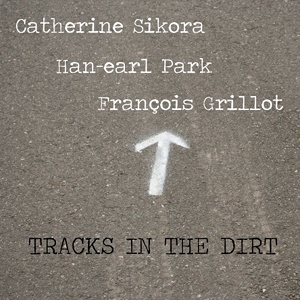
Coming soon: Catherine Sikora, Han-earl Park and François Grillot’s Tracks in the dirt (Clockwork Mercury Press 003). Recorded September 26, 2012 at 56 Kitchen, New York. More to follow…
download release: Michael Lytle and Han-earl Park, ‘coma duo’
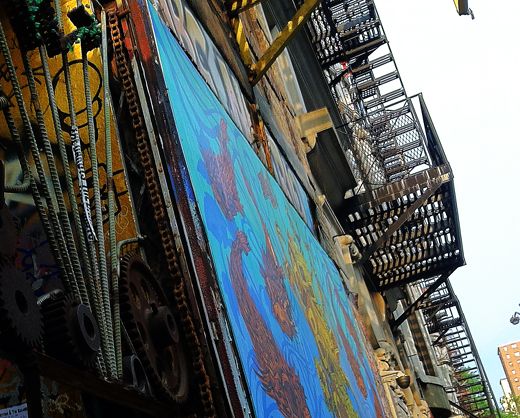
Elewhale Music Productions releases ‘coma duo’ with Michael Lytle and Han-earl Park. [Bandcamp page…]
personnel
Michael Lytle (bass clarinet) and Han-earl Park (guitar)
track listing
part one (19:44), part two (11:26). Total duration: 31:10.
recording details
All music by Michael Lytle and Han-earl Park.
Recorded June 9, 2013 at ABC No Rio, New York.
Performance presented as part of COMA: Citizens Ontological Music Agenda curated by Blaise Siwula.
Recorded and mixed by Michael Lytle.
© 2013 Elewhale Music Productions.
℗ 2013 Michael Lytle and Han-earl Park.
Also available for download [more…]

Dunmall-Park-Sanders (Birmingham, 02-15-11) [details…]
Performers: Paul Dunmall (saxophones and bagpipes), Han-earl Park (guitar) and Mark Sanders (drums).
(cc) 2013 Paul Dunmall/Han-earl Park/Mark Sanders.

Gargantius Effect +1 +2 +3 (Nor Cal, 08-2011) [details…]
Performers: Murray Campbell (violins, oboe and cor anglais), Randy McKean (saxophone, clarinets and flutes) with Han-earl Park (guitar), plus Gino Robair (energized surfaces, voltage made audible) and Scott R. Looney (hyperpiano).
(cc) 2012 Murray Campbell/Randy McKean/Han-earl Park/Gino Robair/Scott R. Looney.

Park+Murray (Cork, 07-29-10) [details…]
Performers: Han-earl Park (guitar) plus Marian Murray (violin).
(cc) 2012 Han-earl Park/Marian Murray.

Jin-Park-Weeter (Cork, 01-24-11) [details…]
Performers: Jin Sangtae (electronics), Han-earl Park (guitar) and Jeffrey Weeter (drums and electronics).
(cc) 2012 Jin Sangtae/Han-earl Park/Jeffrey Weeter.

Park-Schroeder (Cork, 03-26-09) [details…]
Performers: Han-earl Park (guitar) and Franziska Schroeder (saxophone).
(cc) 2012 Han-earl Park/Franziska Schroeder.

Sikora-Smith-Park (Cork, 04-04-11) [details…]
Performers: Catherine Sikora (saxophone), Ian Smith (trumpet) and Han-earl Park (guitar).
(cc) 2012 Catherine Sikora/Ian Smith/Han-earl Park.
